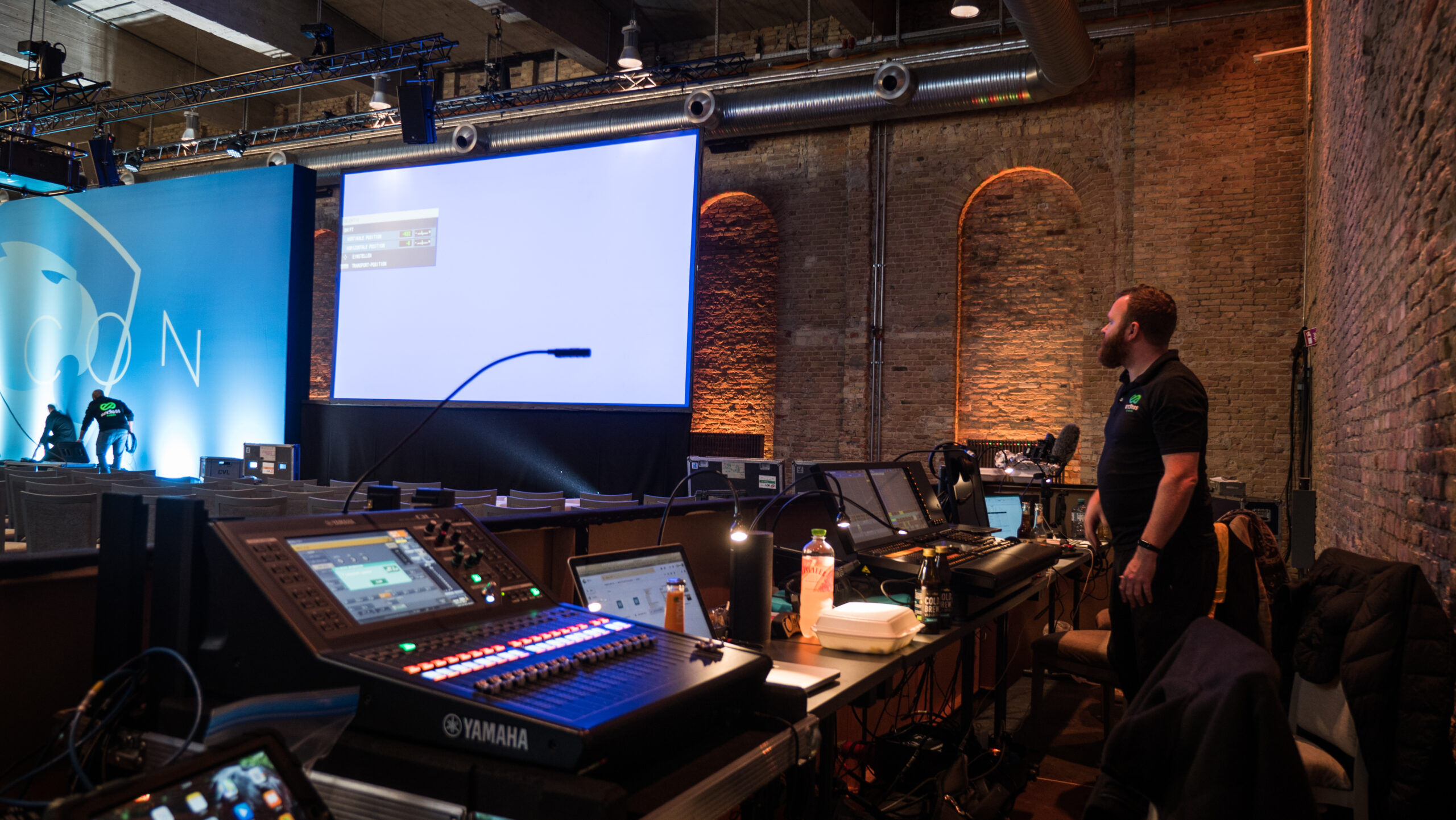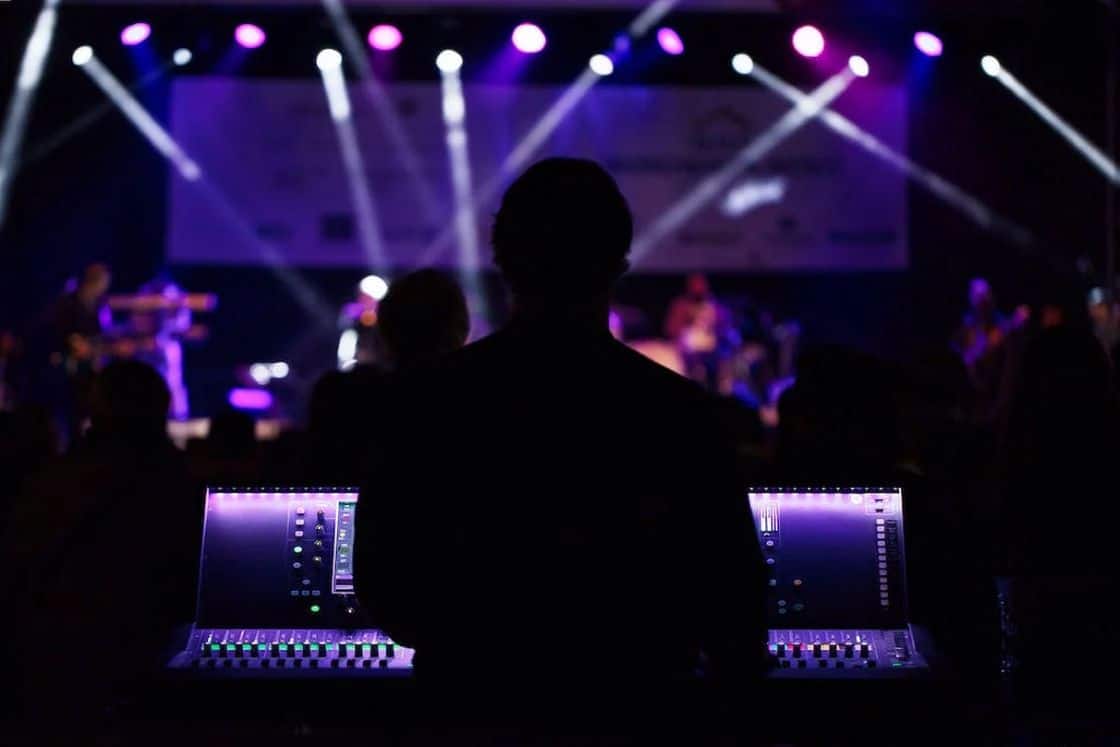Recognizing Event Production: Why It Is Vital for Effective Events
Event production plays an important function fit successful celebrations. It includes careful planning, control, and execution to assure every information lines up with the event's vision. This procedure not just improves participant experiences yet additionally facilitates significant connections among individuals. Recognizing the ins and outs of event production can substantially impact the general end result. What are the crucial elements that add to a successful event, and exactly how can they be properly managed?
The Duty of Event Production in Creating Memorable Experiences
Although numerous aspects contribute to the success of an event, event production plays a pivotal role in crafting memorable experiences. This diverse procedure includes different elements, consisting of planning, logistics, and execution. Efficient event production guarantees that every detail lines up with the overall vision, creating a seamless circulation that astounds participants. By coordinating timelines, taking care of resources, and supervising technological facets, event manufacturers establish a structure for impactful experiences.Moreover, they curate atmospheres that resonate with the target audience, enhancing interaction and psychological connection. From picking appropriate venues to incorporating ingenious modern technology, the options made throughout production considerably influence just how attendees regard and remember the event. By focusing on high quality and attention to information, event production changes regular gatherings right into extraordinary moments, leaving long-term impacts. Ultimately, the skilled orchestration of these components defines the significance of an event, showcasing the significance of specialist event production in attaining phenomenal results.
Secret Components of Effective Event Production
Effective event production depends upon numerous key elements that assure success. Planning and coordination develop a solid structure, while technological arrangement needs deal with logistical requirements. Additionally, implementing target market interaction techniques boosts the overall experience, making the event remarkable.
Preparation and Sychronisation
Preparation and control work as the backbone of successful event production, guaranteeing that every detail lines up flawlessly to create a remarkable experience. Effective planning includes establishing a clear vision and goals, while control requires the careful organization of logistics, schedules, and sources. A distinct timeline is necessary, assisting all stakeholders with crucial milestones and jobs. Interaction plays a critical role, cultivating partnership among group participants, suppliers, and venue team. Routine meetings and updates aid to deal with challenges without delay, making sure that everyone continues to be lined up with the event goals. Ultimately, a structured method to preparation and sychronisation not only improves efficiency yet likewise greatly adds to the overall success and pleasure of the event for attendees and coordinators alike.
Technical Setup Demands
An effective event depends greatly on its technical configuration requirements, which include essential elements such as audio-visual tools, illumination, hosting, and connectivity. Audio-visual devices consists of microphones, speakers, and projectors, making sure that discussions and performances are provided plainly. Proper lighting boosts the setting and highlights vital locations, while organizing gives the required platform for audio speakers and entertainers. Connection, including Wi-Fi and electric access, is important for smooth interaction and technology integration. Each part needs to be meticulously intended and carried out, tailored to the event's details requirements. Inadequate technological arrangements can lead to disturbances, negatively influencing the total experience for participants, highlighting the importance of extensive preparation and attention to detail in event production.
Audience Involvement Techniques

The Significance of Planning and Sychronisation
Planning and coordination are vital to the success of any event production. Reliable timeline monitoring, source allowance approaches, and group interaction characteristics play essential roles in ensuring that all aspects collaborated perfectly. Without a structured approach to these facets, events take the chance of dealing with delays, budget plan overruns, and miscommunication amongst staff member.
Reliable Timeline Management


While effective event production usually depends upon creative thinking and implementation, efficient timeline monitoring continues to be an important aspect that can not be ignored. A well-structured timeline functions as the backbone of any kind of event, making certain that each stage is carried out in a timely manner. It permits the sychronisation of numerous tasks, from venue setup to guest arrivals, while preventing potential traffic jams. By plainly laying out target dates and duties, event organizers can preserve focus and adapt to unpredicted challenges. Furthermore, a meticulously crafted timeline cultivates interaction among employee, advertising responsibility and cooperation. Eventually, efficient timeline administration not only enhances operational efficiency yet additionally contributes greatly to the total success and smooth implementation of the event, leaving guests with a memorable experience.
Source Allotment Techniques
Effective source allocation strategies are crucial for the effective execution of any type of event. Correct planning allows event coordinators to determine and distribute sources, such as financial resources, personnel, and materials, in a way that maximizes performance. By assessing the particular demands of each aspect of the event, coordinators can prioritize jobs and assign resources appropriately. Control amongst various departments makes sure that all aspects, from dealing with audiovisual requirements, are sufficiently sustained. This tactical method not only minimizes waste but additionally improves the total experience for guests. In addition, preparing for possible challenges and having backup strategies in place enables smoother operations. Inevitably, reliable resource allowance adds substantially to accomplishing event objectives and guaranteeing a remarkable gathering.
Team Communication Dynamics
How can seamless interaction amongst team members transform the event production process? Effective interaction is crucial for working with tasks, sharing updates, and dealing with obstacles in real-time. When employee take part in open dialogue, they can rapidly recognize potential issues and develop remedies collaboratively, decreasing hold-ups and misconceptions. This vibrant fosters a cohesive atmosphere where everybody understands their roles and responsibilities, resulting in a much more integrated initiative. Additionally, routine check-ins and feedback loops enhance accountability and warranty placement with the event's objectives. By focusing on interaction methods, groups can streamline workflows, reinforce morale, and eventually raise the total quality of the event. Effective celebrations rest on the capability to connect efficiently, making it a necessary part of event production.
Enhancing Attendee Interaction Through Creative Style
Imaginative design plays an important duty in boosting guest involvement at events, as it promotes an immersive environment that captivates participants' attention. By integrating cutting-edge visuals, interactive components, and thematic decoration, right here event organizers can develop memorable experiences that resonate with attendees. Thoughtful design designs promote activity and expedition, encouraging guests to communicate with displays and each other.Incorporating innovation, such as increased truth or live polling, additional enriches the experience, permitting real-time responses and interaction. Furthermore, sensory elements like lighting, sound, and scent can stimulate emotions and produce an extra interesting atmosphere.The use narration via design helps convey the event's purpose and message, making it much more relatable for participants. Inevitably, imaginative style not just enhances interaction yet likewise strengthens links amongst participants, leaving a long-term impression that extends past the event itself. This strategic method to style is vital for effective events.
Handling Logistics for a Smooth Execution
While the exhilaration of an event can attract attendees in, managing logistics is crucial to safeguard a smooth implementation. This includes meticulously coordinating different elements, from location choice and layout to event catering and transport. Reliable logistics management guarantees that all elements line up, permitting a smooth flow from enrollment to the conclusion of the event.Additionally, a clear interaction strategy amongst all stakeholders is crucial. This includes staff, suppliers, and volunteers, that need to be informed of their duties and responsibilities. Preparing for potential obstacles, such as equipment failure or unforeseen climate condition, can even more boost the event's success.Creating a comprehensive timeline aids keep the team on the right track and enables timely changes. Inevitably, well-managed logistics not just promote a pleasurable experience for attendees but additionally mirror the professionalism and reliability and reliability of the organizers, adding to the total success of the event.

The Effect of Technology on Event Production
What function does innovation play in forming modern event production? Innovation has actually ended up being a keystone of efficient event production, boosting both preparing and implementation processes. From innovative registration systems to interactive apps, modern technology simplifies attendee administration and improves interaction. Virtual event systems permit organizers to reach wider audiences, breaking geographical obstacles and helping with hybrid celebrations that incorporate in-person and on-line experiences.Additionally, audiovisual innovations, such as high-def displays and stereos, boost the high quality of presentations and performances, making sure an unforgettable experience for participants - event production charlotte. Social network combination allows real-time feedback and communication, promoting neighborhood interaction previously, throughout, and after Web Site the event. Information analytics tools aid coordinators in monitoring participant actions and choices, enabling tailored experiences that reverberate with varied audiences. Overall, the integration of technology in event production not just boosts operational performance yet likewise enriches attendee experiences, ultimately adding to the success of the event
Examining Success: Gauging the End Results of Your Event
Success in event production rests on efficient assessment, which involves measuring a variety of end results to examine the general impact of an occasion. To accomplish this, organizers can use both qualitative and quantitative metrics. Measurable procedures may include presence figures, ticket sales, and profits created, while qualitative evaluations could involve participant satisfaction studies and comments forms.Additionally, evaluating social networks engagement and media protection can provide understandings right into the event's reach and brand name effect. Contrasting these metrics against predefined goals aids identify if the purposes were met.Furthermore, post-event debriefs with the his response preparation team can uncover lessons found out and areas for improvement. By systematically evaluating these outcomes, event manufacturers can improve future events, guaranteeing continuous growth and success. Eventually, a comprehensive assessment not only highlights achievements but additionally informs critical decisions for subsequent events, cultivating a society of quality in event production.
Frequently Asked Concerns
What Credentials Should an Occasion Manufacturer Have?
Event producers must have strong business abilities, creative thinking, and efficient communication capabilities. A history in job management, budgeting, and settlement is necessary. Pertinent accreditations and experience in varied event types better enhance their qualifications.
How Can I Decrease Event Production Prices Efficiently?
To properly reduce event production costs, one can enhance supplier option, negotiate contracts, utilize internal sources, focus on essential components, execute modern technology for efficiency, and explore sponsorship opportunities to offset expenses without compromising quality.
What Are the Typical Difficulties in Event Production?
Usual obstacles in event production include budget plan restrictions, logistical sychronisation, vendor administration, time restrictions, guest engagement, technical difficulties, and unpredicted conditions - event production charlotte. Each element can considerably influence the overall success and smooth implementation of the event
Just how Do I Pick the Right Venue for My Event?
Selecting the ideal venue involves considering aspects such as place, capability, facilities, and budget. In addition, examining accessibility and ambiance guarantees the selected space aligns with the event's goals and boosts the general guest experience.
What Is the Common Timeline for Planning an Event?
The typical timeline for planning an occasion differs, yet normally consists of stages such as concept development, venue option, supplier sychronisation, promotion, and final prep work, often extending numerous months to guarantee a successful implementation.